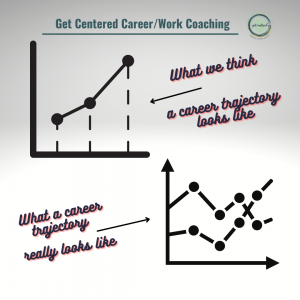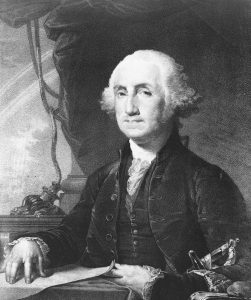
 Most people think of their career trajectory as a straight line when in reality, it has a lot of twists and turns. The right boss can help provide direction through these twists and turns with mentoring, training, and coaching. If you’re making a job change, consider hiring a boss capable of helping you envision, define, and pursue your new career with clarity.
Most people think of their career trajectory as a straight line when in reality, it has a lot of twists and turns. The right boss can help provide direction through these twists and turns with mentoring, training, and coaching. If you’re making a job change, consider hiring a boss capable of helping you envision, define, and pursue your new career with clarity.
As we celebrate Presidents’ Day, consider the life and career of George Washington as a metaphor for hiring your next boss. Every four years, the nation interviews candidates for Chief Executive Officer of the United States. We analyze the abilities of the candidates that we believe can be effective leaders. Supporters of each candidate make a case for their person by illustrating how they’re thoughtful, great communicators, and focused on the good of the American public – the team they’re asking to lead.
Among the abilities, traits, and skills that we look for in hiring the national CEO are:
- Chemistry/Rapport: Are they able to work with others, listen, and champion those who report to them?
- Background: How have the individual’s past experiences prepared them for the role?
- Style of Management: Will that person be effective by being collaborative or by acting as a Maverick?
- Development: Are they able to develop those who work with them into more productive and engaged team members?
- Problem Solving: Do they have superior problem-solving skills that lead to win-win situations when possible?
- Visionary: Are they able to see the big picture from both internal and external perspectives?
Since it’s Presidents’ Day, George Washington is an excellent example of the right boss to make a difference in a new career.
Washington was hired for three positions that were pivotal in transitioning the British colonies to a sovereign, self-governed republic. The three roles showed his skills for dealing with conflict, diplomacy, and leadership as he navigated the challenges of being:
- Commander-in-Chief of the Continental Army
- Presiding Officer of the Constitutional Congress, shaping the drafting and adoption of the Constitution
- First President of the United States
In each of these roles, he illustrated the character and skills that would make people gravitate toward him and follow his lead by:
- Taking responsibility for his actions by controlling his emotions. Washington was known to have a quick temper. He was careful to keep it under control. He was successful at managing external matters because he learned to control his internal issues.
- He constantly learned through reading, listening, observing, and reflecting.
- He knew the importance of civility and treated people with respect. His 110 rules are evidence of this. They were values he developed through reflection at age 14.
- He used morality and emotional maturity to enhance his natural intelligence. In fact, Myers-Briggs’ studies would make Washington an ISTJ. Individuals evaluate Washington as a people person, visionary leader, and one who developed effective organizations around his vision’s strategy and tactics.
As you consider a new position think of the father of our country. A leader who has Washingtons’ skills and emotional intelligence will be one focused on your development and success. That person is not worried about who controls but will be one who:
- Facilitates learning and growth, providing empowerment
- Encourages questions/feedback from peers and employees
- They are an inspiration to their team and the direction of the company
- They don’t demand respect but work on deserving it
- Does not use fear as a motivator
Here are some questions you can ask yourself or others to help gain a better context for hiring your next boss:
A boss that facilitates learning and growth, providing empowerment
- What part do they play in the on-boarding process? (will you be on your own or mentored as you join the organization?)
- Are they involved in the goal-setting of new hires, and how do they measure and coach new employees in reaching goals?
- What is their management style?
- Do they provide periodic reviews? How frequently do they offer performance reviews? Are they used for development? (Effective leaders often use a year-end-review as the foundation for a mid-year review. In year-end-reviews, skills get identified for development, and goals are created, as well as the metrics for measuring a goal’s progress. The mid-year review helps make mid-course corrections on goals and development to set the stage for growth and higher marks at the next year-end-review.)
A boss that encourages questions/feedback from peers and employees
- How does their team make decisions? Are decisions based on input from the team?
- If I see an opportunity to upgrade or enhance a procedure, policy, or product, how do I bring that to your attention?
A boss that is an inspiration to their team and the direction of the company? (Think about these questions when researching the company and the area in which you’ll work.)
- Does the manager run the team people want to join?
- What projects and functional areas of the operation does the manager provide input and play an active role?
- What is the career path of the manager? Do they have a history of advancement, and are they the subject of recognition?
A boss that doesn’t demand respect but works on deserving it
- Leadership requires “followership”. Are the people on the team excited to be working with this leader?
- Are they long-term employees engaged with the job and not working to meet their roles’ requirements?
- Are people on the team advancing their careers and getting ahead in the manner that you would like to see your career advance?
A boss that does not use fear as a motivator
- During the interview, does the manager take all the air time telling you how they do things with a lot of leadership philosophy?
- Is the team split into two camps of friend and foe? Who has the manager’s ear and why?
- Are the team goals all about how the manager can best position themselves within the organization? If the leader is only interested in trophies, then the team members might only be an afterthought.
- Does the manager lead by the reports they read? If so, they are more than likely outcome focused and not looking at the development of individuals.
One final note on Washington. He was offered the title of King. He turned it down. After all that happened during the revolution, Washington didn’t want to go back to the government’s status quo. He wanted to empower people to be part of the management of the nation. The structure of our culture was not about him, and he knew it. Look for that kind of leader when you hire your new boss.
If you’re interested in finding out more about hiring your next boss, click here to schedule a free 1-hour business coaching consultation with John Bushee, ACC. In that session, you can experience the support coaching provides for your career trajectory.
